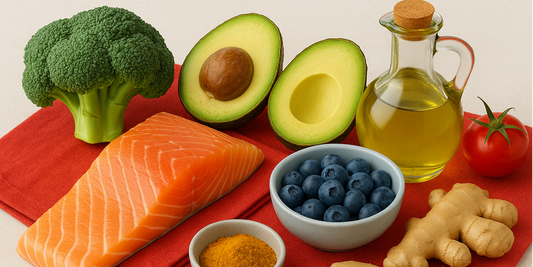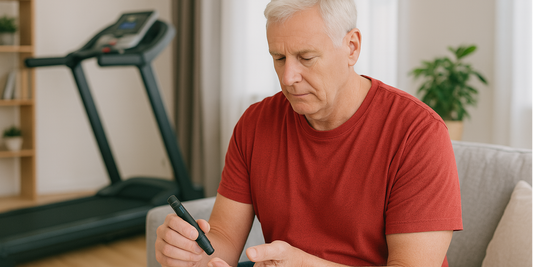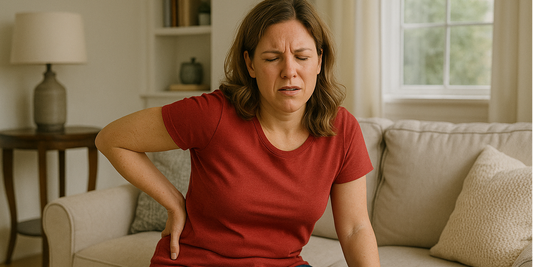
How Long Should I Wait After Eating Before Working Out?
Share
Working out post-meal is a topic that has been studied extensively in the health and fitness community. It's a common question: "How long should I wait after eating before I exercise?" While you may have heard various rules and recommendations, the truth is that there isn't a one-size-fits-all answer.
In this article, we'll explore the factors that can affect your workout after eating and provide some guidelines to help you determine the best timing for yourself.
Why You Should Avoid A Big Meal Right Before A Workout
If you've ever tried to work out shortly after a large meal, you probably know the feeling of discomfort and sluggishness. There are several reasons why it's not recommended to exercise on a full stomach, including:

The Burden on Digestion
Eating a large meal before hitting the gym isn't a wise choice. Your body requires energy to digest food, and when you work out, your energy should be directed towards your muscles. Consuming a big meal can divert this energy towards digestion, leading to discomfort and less effective workouts.

Risk of Cramps and Nausea
Another downside to eating a large meal before exercising is the risk of stomach cramps and nausea. This happens because vigorous activity can cause your stomach contents to slosh around, leading to discomfort and even vomiting.

Hindrance to Performance
A big meal right before a workout can also hinder your performance. Your body takes time to absorb the nutrients from the food you eat. If you start exercising immediately after eating, your body might not have had enough time to absorb these nutrients, which could impact your energy levels and overall performance.
How Long Should You Wait To Exercise After Eating?
The amount of time you should wait between eating and exercising largely depends on the size and composition of your meal. If you've consumed a large meal rich in protein, fats, and carbohydrates, waiting 2 to 3 hours before engaging in a workout is advisable. For smaller meals or snacks, a window of 30 minutes to an hour is typically sufficient.
However, these are general guidelines, and individuals may have different digestive comfort and energy levels. A study by the International Journal of Sports Nutrition and Exercise Metabolism found that athletes who waited 2 hours after a meal before exercising reported less stomach discomfort than those who waited for an hour. Regardless, it's important to listen to your body and experiment with different timing to find what works best for you.
How Meal Timing Can Help or Hurt Your Workout
Meal timing can significantly impact your workout performance and recovery. Consuming a balanced meal with complex carbohydrates, lean protein, and healthy fats 2-3 hours before working out provides sustained energy. Hydration is key during the workout, especially for longer sessions. Post-workout, it's beneficial to consume protein and carbs within 45 minutes to aid muscle repair and replenish energy.
Poor meal timing can lead to discomfort or lack of energy during workouts. This is why it's important to listen to your body and plan your meals and snacks accordingly. It's also helpful to keep a food diary to track how different meal timings affect your workouts.

Tips For Eating Before Working Out
If you do decide to exercise after eating, here are some tips to keep in mind:
Choose easily digestible foods: Opt for meals or snacks that are low in fat and fiber. These types of food are easier on the stomach and can help minimize discomfort during exercise.
Stay hydrated: It's important to stay hydrated throughout your entire workout. Drink water or other fluids in moderation before exercising to avoid feeling bloated or weighed down.
Give yourself time: Whether it's 30 minutes or 3 hours, make sure you give yourself enough time between eating and working out. This will allow your body to digest the food and for some nutrients to be absorbed, providing you with the necessary energy for a successful workout.
Meal Plan: If you know you have a workout coming up, plan your meals accordingly. Opt for lighter meals or snacks before a workout to avoid feeling weighed down and uncomfortable.
Conclusion
In summary, there isn't a definitive answer to how long you should wait after eating before working out. It's important to consider factors such as meal size, composition, and personal digestive comfort when determining the best timing for yourself. Listening to your body and giving yourself enough time between eating and exercising can help you have an enjoyable and effective workout.
Remember, it's always best to consult with a healthcare professional for personalized advice on nutrition and exercise. So, next time you're planning to hit the gym or go for a run, keep these tips in mind for a healthier and more comfortable workout experience.



